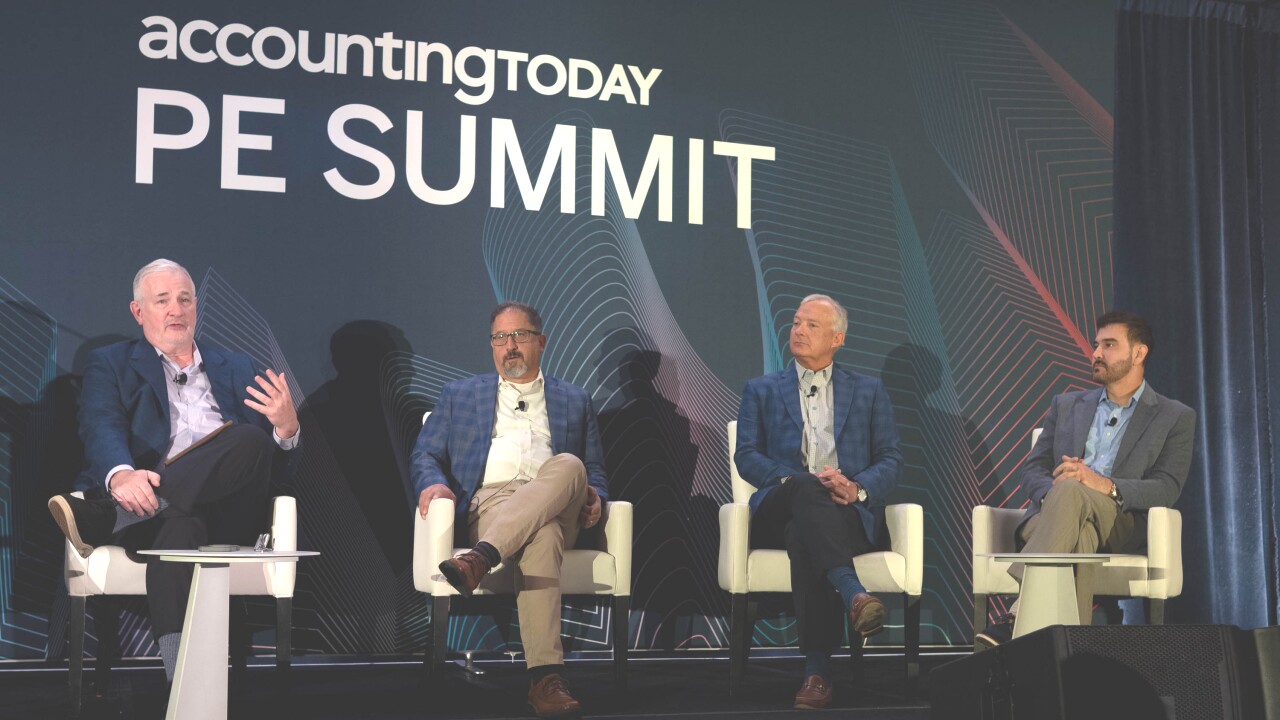On Tuesday, the third day of sessions at the 2016
Keller believes that mentoring is the most important of all career support activities, that it is valued by people in all walks of life, and should be a foundation of the CPA profession.
"[Mentoring] is a very important topic," she told the audience. "People are going back to mentoring to retain top talent. I am concerned about our profession and our ability to retain people. I think we're scaring [young] people away."
Keller insisted that all firms require a "mentoring culture," an environment that is inclusive and can bring people together. "If you can build that culture of inclusiveness, that's what's going to make your firms grow, prosper, recruit and retain top talent," she said.
And when a firm does have that top talent, Keller says, they have to take a hard look at themselves to see if they're building a culture a young person wants to be mentored in.
"Does your firm have a purpose?" Keller asked. "Nowadays, people want purpose over pension; great colleagues over a great boss," she said. "The biggest issue I see is career path. When young people come into your office, they want to know what's the next step? What's the next level? They want a quicker pace." Keller believes that even something as simple as raising the amount of promotions or job titles can drive purpose, as it's "an easy way to show people they're making progress."
But the most important reason for mentoring, Keller says, is succession. "If you mentor and nurture, succession won't be an issue in your firm. The War for Talent is real. It is imperative to expand mentoring, feedback, recognition and leverage proven value in retaining people."
In her own experiences, Keller feels that the current mentoring programs in firms are not up to par, with little accountability. "Programs must be more than a free lunch," she advised.
"Firms often make it too complicated and too difficult," she said. "I find accountants often make things too difficult. With mentoring, you've got to make it simple."
Keller also feels that there is confusion about "coaching" versus "mentoring." Coaching, she says, is task-oriented, while mentorship is relationship-oriented. "Coaching is short-term, mentoring is long-term."
As a mentor, and not a coach, it's a person's responsibility to help a young person make significant transitions in knowledge, work, or thinking, actively engaging them in everyday business.
"You want the new people in your firm to get up to speed as soon as possible," she says. "Mentoring allows them to get working much faster."
Keller lists the main reasons for implementing a mentoring program as: Helping the transition from college to the workforce; as a way to reinforce the firm's vision, values and performance standards; and to help people develop greater commitment and accountability.
"If you lose a person, it's your fault," Keller warns. "Don't blame the firm down the street. Something's missing; what's missing?"
Keller advised that millennials are searching for a mentor to help them achieve their goals, that they want open, constant communication and personal fulfillment in a job. However, it all leads back to the mentor being a role model.
"What's in it for the mentor? Younger people are looking at you with a magnifying glass," Keller said. "What you do they will mirror. [Mentoring] is a reason to set a good example because they're watching you. What's in it for the firm? Survival."
Keller left the session with a few words to ponder: "Change your firm with 8 words: 'What do you think? How can I help?'"
For more on Prac Tech 2016, follow the event on Twitter





